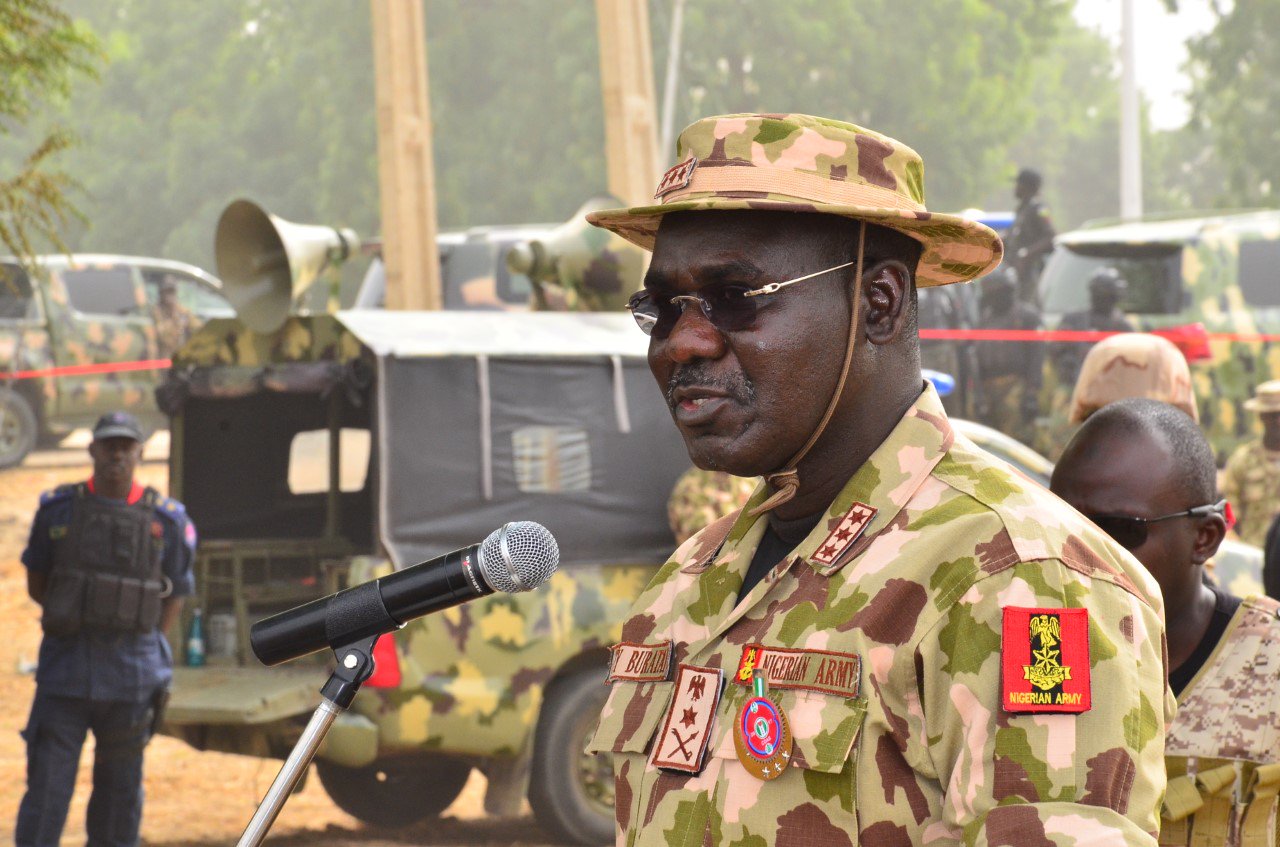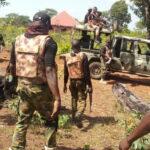The Chief of Army Staff, Lieutenant General Tukur Yusuf Buratai, on Monday said Boko Haram activities have been confined only to the Lake Chad area and the Sambisa forest in north-eastern Nigeria.
This is just as he assured that Nigerian Army is still in search of the remaining abducted Chibok girls still in Boko Haram captivity.
Buratai stated this while delivering the maiden lecture of the Centre for Contemporary Security Affairs at the Igbinedion University, Okada in Edo state titled: “Military and Democratic consolidation in Nigeria, appraisal of the Nigerian Army counter-terrorism and counter-insurgency operation.”
He noted that Boko Haram activities were reduced in the region due to the resilience of the military in collaboration with other security agencies.
According to him, the preservation of sovereignty and good governance are crucial to the well-being of the nation and its people.
He noted that complex security challenges like the Boko Haram insurgency required political and security solutions that ensure that democracy and good governance rebound stronger after a crisis.
Buratai said the government of President Muhammadu Buhari has fulfilled the pledge to support the MNJTF by donating the sum of $100 million, adding that the current political leadership has demonstrated strong political will, purposeful direction and resourcefulness that galvanized the nation against the common enemy.
He said, “One of the silent but radical changes in the operations was changing the orientation and mind-set of troops from a defensive to an offensive posture.
“We also created the Theatre Command to coordinate the activities of the divisions involved in the operations.
“Socio-economic activities and free movement of people and goods have resumed in many areas. Significant improvements can be attributed to the systematic campaign led by the Army in conjunction with other security and elements of national power
“Success recorded so far is an indication that for Nigeria’s democracy to be consolidated, the military must not only play its part but must also fulfil the constitutional roles assigned to them.”
Buratai identified porous border, large space of operational environment, cross-border insurgency, and insufficient international support in terms of equipment among others as the challenges militating the fight against insurgency.
Earlier, the Vice Chancellor of the institution, Prof. Lawrence Ezemonye, said the centre when operational would carry out research that interrogates emerging security challenges of local and global concern.
He said the centre when operational will conduct research in terrorism, organised crimes, cyber security and intelligence among others.

 Join Daily Trust WhatsApp Community For Quick Access To News and Happenings Around You.
Join Daily Trust WhatsApp Community For Quick Access To News and Happenings Around You.


